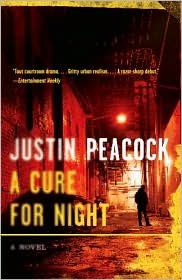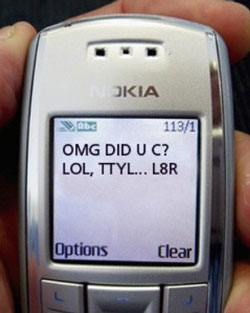
The funeral of Kim Jong Il, the recently departed “Dear Leader” of North Korea, occasioned some of the worst acting you’ll ever see. Makes Steven Seagal look Oscar calibre.

The funeral of Kim Jong Il, the recently departed “Dear Leader” of North Korea, occasioned some of the worst acting you’ll ever see. Makes Steven Seagal look Oscar calibre.
According to research by the Washington Post, between 1984 and 2009, the median net worth of Congressmen more than doubled, from $280,000 to $725,000 (with inflation factored in). That means half of Congressmen are worth more than $725,000, half are worth less. Meanwhile, the net worth of the average American has gone down slightly.
The right-wing media teaches its lap-it-up followers to defend, applaude, and practically worship the rich, because they are Job Creators. After all, the whole system of capitalism depends on their benevolence.
So, it makes sense to have rich people in Congress. That’s where we want Job Creators. Right?
In previous times, Congress included a lot of very ordinary people–farmers, teachers, everyday workers. Mr. Smiths. But surely that’s not what the Founders intended. Congress should be populated by the rich. Because they, out of the goodness of their hearts, only want to bring prosperity to the huddled masses.
Right?

Pam and I have really liked the Twilight movies, based on the books by Stephanie Meyer. Pam read all of the books, too.
The fourth and last book is Breaking Dawn. With the franchise coming to an end, the studio decided to milk it by making two books out of Breaking Dawn. The result was a movie in which hardly anything happened. There’s a wedding, a honeymoon, a pregnancy, lots of fussing with feelings of regret and guilt, and then a minor confrontation between vampires and werewolves.
They kept the moodiness of the other movies. But nothing, just nothing, happened. I guess all the good stuff is in the second half of the book.
I will say this: the end, the very final scene, the last few seconds–that was really good. But if I wasn’t a big fan of the series, I might have wanted my money back.
I started my blog in October 2004. It seems like I’ve been blogging forever, that October 2004 was ancient history.
But just now, I was thinking about it and realized October 2004 was nearly 2 years after we invaded Iraq. So if I’ve been blogging forever, our war with Iraq lasted forever + two years. Geesh, George W., you really dragged us into something.
I noticed that my third post, back in October 2004, was titled “Thoughts on Bush.” It was written a couple weeks before the 2004 election. I reread it, figuring that the march of time would have changed some of my views. But, nope. Read it for yourself.

L-r: Katie Curic, Scott Pelley, Brian Williams, and Diane Sawyer.
I’ve always been a student of the news. Though I trained in college as a journalist, I’ve spent my career in institutional communications, which real reporters view as the refuge of compromisers, the Dark Side. But I’ve always maintained my fascination with the mainstream, hard-news media. I dropped my subscriptions to Columbia Journalism Review and Washington Journalism Review years ago, but still do plenty of reading and critical observing of the men and women who bring us the news.
People don’t like hearing this, but the best day-in and day-out reporting still occurs on the 3 network evening news shows–CBS, NBC, and ABC. Those shows are the most objective, and they cover a broad range of subjects.
I know, the right-wing pundits tell you that anything but FoxNews is the “liberal media” and shouldn’t be listened to. The Faithful are only permitted to listen to FoxNews. But I say rubbish. I far prefer the evening news shows. They easily deliver the most consistent high-quality journalism. But only for 30 minutes.
Brett Baier at FoxNews is okay, but it’s clearly a politically partisan show, not serious news. CNN’s Wolf Blitzer–sorry, I just can’t stomach him. Fingernails on blackboard stuff. And MSNBC doesn’t even try to do an evening news show, instead starting early with their partisan yokels, whom I find unwatchable.
But from 6:30-7:00, if I’m home, I’m watching the Big Three networks. Good, solid reporting.
I’m a big Brian Williams fan, more so than I was a fan of Tom Brokaw. But lately, I’ve developed quite a taste for Scott Pelley, who this year replaced Katie Curic on the CBS Evening News.
Now, I think Katie Curic got a raw deal from viewers. I, personally, didn’t care for her general style and didn’t watch her show much. But they did some creative, solid stuff under her leadership. I remember one marvelous report which showed the affects of the economic slowdown rippling through one community.
Katie was a competent anchor. But coming from the morning shows, people viewed her as light-weight and never really gave her a chance. Plus, she may have been too much of a change in a time-slot where people may prefer sameness. You can probably put me in that category. As I said, I didn’t care for her general style, though my greater problem was with the shallow pool of seasoned reporters. CBS’s once-exceptional line-up of reporters has been decimated in recent years. But Katie was a much better anchor than people gave her credit for. I think a lot of the perception was just pure sexism. But in the end, she wasn’t pulling in the ratings, and the evening news is a business. She had to go.
Scott Pelley, who earned his reporting cred on 60 minutes, brings a whole different style. He comes across as very serious–a bit Dan Ratherish, but not Rather’s strained way which made me grimace. You just feel like Pelley’s giving you the day’s stories in an objective package without trying to entertain or condescend. I like that. More and more, I find myself dwelling on CBS. Plus, Pelley can always draw on the ace reporters at 60 Minutes.
Diane Sawyer is solid, too. But ABC is clearly chumming with the entertainment division. Sawyer landed interviews with Gabby Giffords and Jaycee Dugard, and is the anchor most likely to nab Casey Anthony, Amanda Knox, and that ilk. Not my cup of tea. But hey, it’s good for your ratings.
My preference is still NBC, but more because of the depth of their bench–Richard Engel (the premier war correspondent), Andrea Mitchell (the best Rolodex in town), Chuck Todd, David Gregory, Jim Miklawszewski (Mr. Pentagon), Kelly O’Donnell, Nancy Snyderman, Lisa Myers, and many others. It’s an unbeatable team. And Brian Williams, though he plays it straight on the evening news, is as funny as they come when you get him on the Daily Show or other platforms.
But watch out–Pelley’s on the hunt.
2 Comments
I suppose most movements have some of the same elements:
Take the Tea Party.
But amidst all of that, the Tea Party drew deserved attention to two things:
So long after the townhall shouting ended and the signs came down, we’re still talking about reducing spending and keeping the feds out of areas best left to the states. Those are good, very good, things.
Now we come to the Occupy movement. A lot of parallel things. People who can’t explain why they are camped out in a city park. People who view it as a 2011, no-music version of Woodstock. The drum-bangers who think that’s the way to bring about social change. The fringers who think capitalism is evil, or who advocate a communist system, or who favor wealth redistribution. Lots of general silliness.
But there are, again, legitimate grievances which need to be given attention.
It’s easy for MSNBC to find elements in the Tea Party to ridicule. And it’s easy for FoxNews to do the same thing to the Occupy Wall Street people. But both movements have valid things to say. It’s hard hearing the good stuff amidst all the surrounding Looney Tunes, but we shouldn’t out-of-hand write them off just because our preferred pundits say we should, or because somebody spotlighted in a news report is clearly a nutjob.
I’m ready for the Tea Party to go away, just as, soon, I’ll be ready for the Occupy folks to fade into the background. But I hope that, in both cases, their legitimate grievances remain entrenched in our minds and in the political agenda.
Rudy Giuliani has come out in favor of Newt Gingrich, and Donald Trump is certainly leaning that way. Something these 3 men have in common: 3 wives. And when it comes to their current wives, they all prefer younger women.
In 2008, Republicans chose as their nominee John McCain, who is 18 years older than Cindy (his second marriage).
Welcome to the Family Values party.
Is Newt really who Republicans want as their nominee?
On the other hand, the other candidates have had just one spouse apiece–Romney, Santorum, Paul, Cain, Huntsman, Bachman, Perry.
1 Comment
 A Cure for Night, published in 2008 under the Black Lizard imprint, was an intriguing book, and an admirable debut novel by Justin Peacock. It’s a murder mystery told first-person by a public defender named Joel Deveraux, who worked for a high-flying law firm before heroin got him fired. Now he’s defending common criminals in Brooklyn, New York.
A Cure for Night, published in 2008 under the Black Lizard imprint, was an intriguing book, and an admirable debut novel by Justin Peacock. It’s a murder mystery told first-person by a public defender named Joel Deveraux, who worked for a high-flying law firm before heroin got him fired. Now he’s defending common criminals in Brooklyn, New York.
He gets assigned to help Myra Goldstein, a tough, street-smart public defender, with a murder case. A black man, a pot dealer, has been accused of shooting two men–killing a white Jewish college student, and wounding another drug dealer. Because it involves a white man gunned down in the projects, the case is drawing some attention.
Joel and Myra go about their business, talking to the various witnesses and other people involved, building a case to defend their client. There are no big themes–no racial issues, no cover-up by powerful people, no government conspiracy, no Mafia figures lurking in the background. It’s just a straightforward, fairly pedestrian procedural. As I progressed through the book, I kept waiting for a Big Theme to emerge, something to justify the book’s existence and my continued investment of time in reading it. Yet, I was engrossed.
So what kept my rapt attention? Three things.
The book’s title comes from this exchange between Joel and Myra:
Myra: “That’s what the criminal law is: it’s how the day tries to correct the night’s mistakes. Most of my cases, people have done something they never would’ve dreamed of doing in broad daylight.”
“What does that make us?” I said. “The night’s janitors?”
“We’re absolutely that,” Myra said, sipping her cosmo. “What else do we do but clean up after it? That’s why we’ll never run out of work. Not unless someone invents a cure for night.”
The book ended on a very satisfying note, and though the resolution should have been obvious, it took me by surprise.
src=”http://www.youtube.com/embed/CYbVpAwGGGs” frameborder=”0″ width=”560″ height=”315″>
This is hysterical. Two guys make up shopping lists for each other–really silly, made-up items–and then they head to what appears to be a Target to find these items.
 A lot of words in the English language need to be simplified, which usually means they need to be shortened. Perhaps Twitter and texting will finally make this happen. Twitter and texting ARE changing our language. And no need to get all huffy about it.
A lot of words in the English language need to be simplified, which usually means they need to be shortened. Perhaps Twitter and texting will finally make this happen. Twitter and texting ARE changing our language. And no need to get all huffy about it.
Language continually evolves anyway. Popular usage regularly determines what is acceptable. Such has been the pattern for hundreds of years (the King James Bible was written in what was that era’s common language, so contemporary usage has traveled far). This is not something to get snooty about and condemn, unless you’re an English teacher, in which case you may consider it your job. But keep an open mind.
Who wants to text “through” when “thru” gets the message across. As does “tho” for “though.” It’s all about communication. If the person on the other end knows what you’re saying, who cares whether Webster’s endorses the spelling? (Yes, you’re hearing this from a professional editor, who is supposed to be a fuddy-duddy.)
Lots of other words ending in “ght” need to be replaced with shorter words. I use these spellings all the time when texting and Facebooking (and ONLY when texting and Facebooking). Nite, mite, lite, rite, fite. Simplify, simplify! It’s a noble thing.
We’ve already simplified words from our previous British overlords, who steadfastly resist linguistic change. We took the unnecessary “u” out of a bunch of words–labour, colour, favour–and dropped the silent “e” from the end of “borne” and other words. Of course, in the age of Flickr, we could go a step furthr and make it labr, colr, favr. The Brits might actually settle for constructions like “labre” (I hereby reference “centre”), which may be an acceptable compromise for now. We can pick off the “e” later.
The Flickr example could spread to other words, like bittr, aftr, and forevr (not to be confused with 4evr). Thousands of people text like this every day. Don’t be surprised if it becomes the norm.
Then there are words like “neighbour,” which could be shortened all the way to nabor (remember Jim Neighbours, aka Gomer?). We changed the English “doughnut” to “donut” without triggering apocalyptic consequences.
Texters are also clipping silent letters from other words: I’v, hav, wil, com. I’m not there yet.
If the self-referential “I” can be spelled with just one letter, why can’t “you” become “U”? Why is that unreasonable? (But I don’t favor shortening “see” to “c” and “are” to “r.” I maintain my right to be inconsistent.)
Is it still necessary to use contractions? I think cant, dont, and even isnt get along just fine without apostrophes. (Somewhere, we went backwards in turning “an’t” into “ain’t.”) Young people get confused anyway about where to put the apostrophe, yielding such nails-on-chalkboards spellings as “is’nt.” (And I won’t even go to the Mother of All Transgressions May You Burn in Hades, adding apostrophe’s to mere plural’s. Usage cannot, and must not (or musnt) determine correctness in this case. On this hill shall I gladly die. )
I read that over the years, nearly 16,000 compound words have lost their hyphen. They actually started out as separate words, then married with a hyphen, and then eventually discarded the hyphen. I see nothing wrong with that. Leapfrog, makeover, postmodern, bumblebee, crybaby, homework, testtube, keypad, waterbed, pigeonhole, logjam. I’ve been writing “email” for years, knowing that that spelling will ultimately prevail, though style manuals and most magazines still cling to “e-mail.” I just don’t see the point of the hyphen, so I skip it. I don’t believe it confuses my readers.
I do draw the line at combining numbers and characters, like 2day and 4ever and sum1 and b4 and sk8 and gr8 (the numeral makes me strangely think of skeight and greight). However, I can see myself sliding into the habit of substituting numerals in the interests of quicker texting. Satan invented texting as a way to drive linguistic purists insane.
And there are other trends I’ll personally skip for now. Like scrapping the “g” in “ing” words. Like comin and goin, workin and drivin.
Of course, in professional/business communications, I use correct spellings. No sense in looking illiterate. But one of these days, at least some of these shorter words will become acceptable in business communications. And then, after another 20 years, Webster’s will get around to okaying it. Or OKing it. Whichevr.